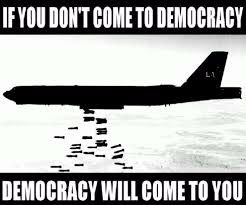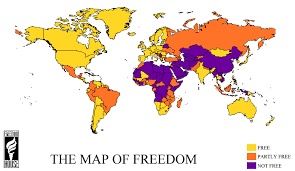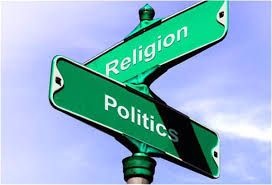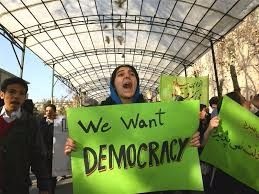DOES ISLAM SUPPORTS DEMOCRACY?

The word “democracy” — a Greek word in origin — is composed of Demo or the people and “Cracy” rule, or rule of people, it started in city states of Greece. A lame tradition of Democracy was practiced in Rome where it got mixed up with Emperorship and had a zigzag course. Otherwise in Europe, worst authoritarian rule remained entrenched till the French Revolution or the 18th century where the theory of Divine Rights of Kings was propounded. It developed after the French Revolution or after the 18th century primarily in England and also in France but naturally under the hallow of different cultural backgrounds “Democracy” as is now practiced evolved in England and the British Parliament is called the mother of all parliaments.
Whether democracy is compatible with Islam or not has been under discussion for more than a century. However, since the final decades of 20th century and especially in post 9/11 world, this very question has gained more prominence. Many people hold that democracy has no place in the political system of Islam. But, Islam is not merely a religion; it is a complete code of life. All aspects of Muslim society, individual or collective, are covered by the social structure of Islam. Hence, a political system also comes very much under the Umbrella of the Islami. The great Muslim thinker and poet Allama Iqbal has
rightly said:
“Statecraft divorced from Faith to reign of terror leads, Though it be a monarch's rule or Commoners' Show.”
The important manifestation of a political system is vindicated through the establishment of a state and the way of its governance. The Holy Prophet (PBUH) established a state at Medina, of a unique type, based on consultation, justice, equality and accountability. After his passing, his righteous successors maintained the same system of governance.

The Holy Quran has mentioned the word 'shura' for governance in Surah AshShura (The Consultation); verse 38: “They govern with mutual consultation.”
The essence of a true democracy too is consultation. The governing system of the Righteous Caliphs was the manifestation of this democracy. The basic pillars of a true democracy, i.e. consultation, justice, equality and accountability, are found in the governance of the Four Righteous Caliphs.
Presently, the UK and the US are regarded as the pioneers of Western democracy. Are their rulers questioned so openly and bluntly by the common men in public places as the aforesaid caliphs used to be? Nowadays, in a democratic system, the rulers are elected through votes and the candidates offer themselves for their election, utilising all kinds of sources for winning elections while none of the rightful caliphs offered himself for election. Each was selected by a majority of the people, after the
proposal of their names by other people.

Furthermore, their deeds verify the highest democratic values in governance which are extinct today in the governance of the so called democratic rulers. The day after his election as the caliph, Hazrat Abu Bakar (RA) came out with pieces of cloth on his shoulder to sell, because before his caliphate, this had been his source of income. Hazrat Umar (RA) met him on the way and asked, “What are you doing?” He replied, “I have to support my family.”
The rights to criticism and freedom of expression before the ruler, which are important features of democracy, were evident in the governance of these caliphs. Hazrat Salman Farsi (RA), a respected companion of the Prophet (PBUH), questioned Caliph Hazrat Umar (RA) in a public gathering, asking why he had taken two sheets while everyone else got a single sheet from the
spoils. Hazrat Umar (RA) instantly called his son Abdullah who clarified the position of his father by replying that he had given his sheet to his father due to his tall height.
Hazrat Usman (RA) had to face very severe criticism by the people during his caliphate, but he did not attempt to stop them by any means; rather, in reply to their criticism he always clarified his position publicly.
Hazrat Ali (RA) as the caliph tolerated the extreme abuses of the Khawarij. Once, the caliph saw a Jew selling his lost chain armour in the market. Being the ruler, he did not snatch his armour from that person but submitted his complaint in the court of a judge. The judge asked for the evidence and Hazrat Ali (RA) produced the evidence of his son, Hazrat Imam Hasan (RA), but the judge didn't accept this evidence as the latter was the son of the caliph, and gave judgment against the caliph. The Jew, observing this rare example of justice, accepted Islam at Hazrat Ali's (RA) hands.

Today, out of the aforesaid examples, can any ruler of a democratic state present such example? The leading pioneer of India's independence, Mahatma Gandhi, had once said that he wanted such a democratic state whose ruler followed in the footsteps of Hazrat Umar (RA). In conclusion, it may be said that Islam had been the pioneer of democracy, but its followers in general have forgotten their
own values along with the democratic system of governance. It is an irony of history that contemporary Muslim political thinkers and intellectuals, too, now see Western democracy as a model.



